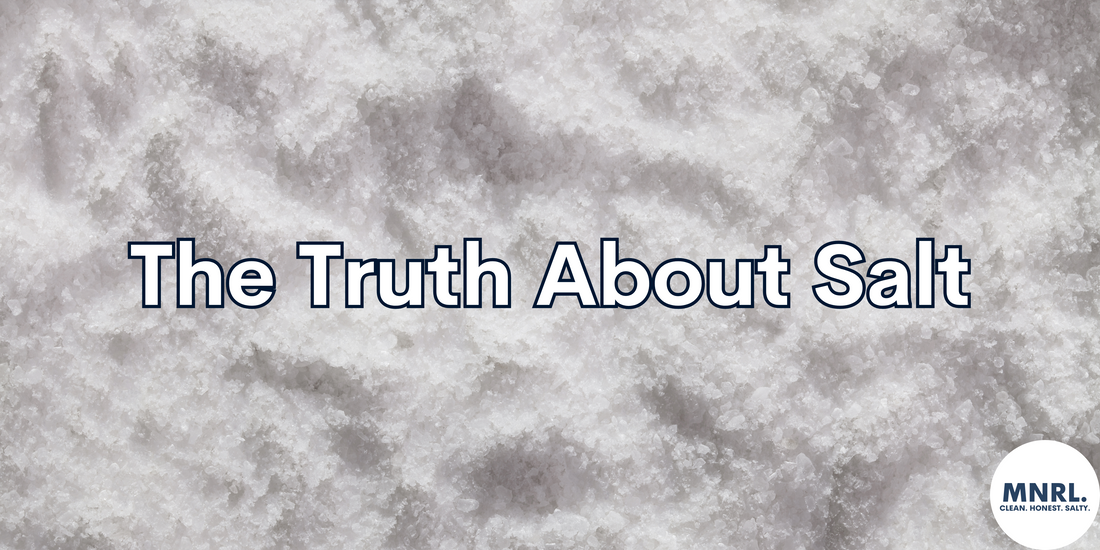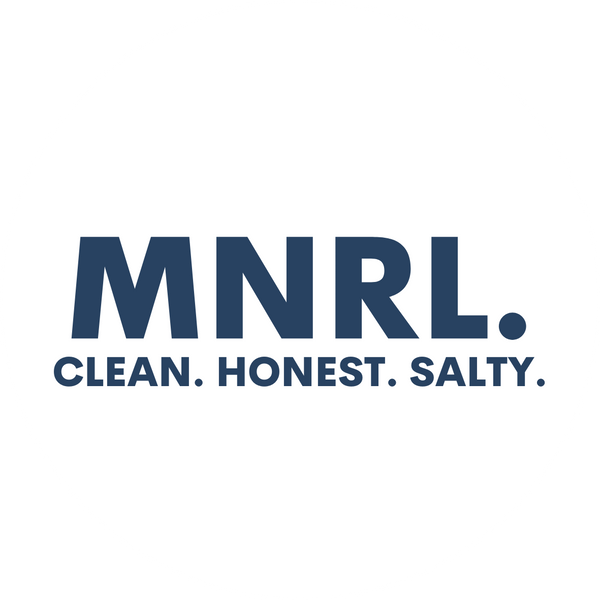
The Truth About Salt
Share
“Aren’t you worried about how much salt you’re having? What about your blood pressure? What about your heart?!” If you’re anything like me, you’ve had this question posed to you when people read what is in MNRL. Salt has been one of the prime super villains in the story of blood pressure and cardiovascular disease for decades. We are still to this day, told to limit our salt intake to save our lives. To understand these bizarre recommendations, we need to understand a bit of the science and flaws behind the studies that started this idea.
Going back to the 1960s, Lewis Dahl found that giving rats about 150 times the human-equivalent daily dosage of sodium gave them high blood pressure. Despite the fact that humans are not rats and the dosages done in the research would be impossible to do in the real world, the conclusion drawn from the research was that sodium is bad for blood pressure, period. Then through the 1980s, some food survey data collected from Americans suggested that high sodium intake was associated with higher blood pressure and higher rates of cardiovascular disease. There were several issues with this research. If I ask you what you ate last week, and you tell me you ate mostly ultra processed crap, you gorged on pizza, chips, fast food and microwave lasagne, you would have been classed with ‘high sodium’ consumption. Couple that with your high blood pressure and heart disease and we can say that sodium causes these things right? So makes sense to limit sodium right? In reality, there is much, much more to the story, what else is in this “food”? Do you smoke? Do you drink? Do you have a sedentary lifestyle? None of these factors of disease were considered when this research was done.
From this flawed but very convenient data, the FDA gave us guidelines that we should aim to consume less than 2.3g of sodium per day, a recommendation likely to lead to sodium deficiency. More recent and certainly more robust research such as The Intersalt study is starting to shift the narrative around salt, where 10,000 people across 48 countries were examined and no correlation was found between salt intake and high blood pressure. Also, the Framingham study that found that sodium intake less than 2.5g per day was linked to higher blood pressure than higher salt intakes. This is likely due to when we limit salt too far, our body goes into sodium retention mode, where we release hormones that make our kidneys hang on to sodium, these hormones including aldosterone, renin, angiotensin and norepinephrine, which also increase blood pressure.
More recent recommendations suggest we should be aiming for 4-6g of sodium per day, more if you’re on a lower carb diet, are active or living in a hot climate. This is the optimal amount for most people, any less and you’ll likely experience some of the deficiency symptoms like fatigue, headaches, muscle tension, cramps, trouble sleeping etc. If you’re deficient for long enough, you’ll be a risk of osteoporosis, where your body starts to steal sodium (as well as protein and calcium) from your bones and makes them porous and fragile. Restriction of sodium below 4-6g per day has been shown to increase risk of cardiovascular disease by 19%. This information should show us that sodium is essential for optimal human living and most people should be aiming for more sodium, not less. Furthermore, even if someone is ‘sodium sensitive’, we see NO increase in blood pressure if the sodium ingested is coupled with potassium. Unfortunately, this information has been very slow to trickle down to our health professionals, who still seem to be caught up in the old idea that salt is the devil and should be avoided at all costs. It’s another example of how our health care system is not at all set up to truly identify root causes, or to treat our chronic diseases effectively. These conditions are more often than not ‘lifestyle’ diseases and should be treated first with lifestyle interventions such as exercise, nutritional changes, getting better sleep and managing our stress better. My message for everyone is that if you want to live the healthiest life you can, you need to take ownership of your health, do your own research, do your own experiments and see what happens, don’t rely on the average doctor (who has had next to no training in nutrition and lifestyle management) to do this for you.
